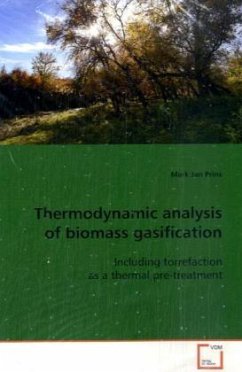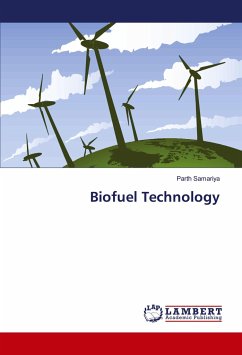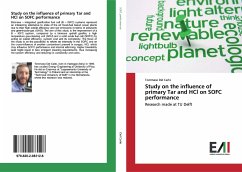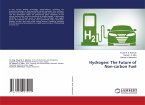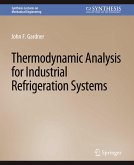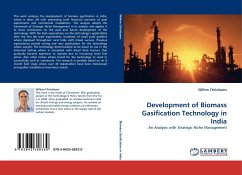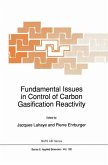Biomass is currently the fourth largest energy source
and its share in the future world energy supply is
expected to increase. Traditionally, it has been
combusted in fires, ovens and boilers. This book
addresses the question how biomass may be used more
efficienty and economically. Through gasification of
biomass, produced gas could be increasingly used in
modern devices such as gas turbines and fuel cells or
in chemical reactors.
This work analyzes the thermodynamic efficiency of
gasification, with emphasis on the effect of
feedstock composition. A promising possibility to
enhance the fuel properties of woody biomass prior to
gasification is experimentally explored, namely
torrefaction. This technology comprises a thermal
pre-treatment, in which wood is roasted at
temperatures in the range of 230-300 degrees C. Novel
concepts for integration of wood torrefaction and
gasification are highlighted, which may contribute to
the development and introduction of advanced
gasification processes.
and its share in the future world energy supply is
expected to increase. Traditionally, it has been
combusted in fires, ovens and boilers. This book
addresses the question how biomass may be used more
efficienty and economically. Through gasification of
biomass, produced gas could be increasingly used in
modern devices such as gas turbines and fuel cells or
in chemical reactors.
This work analyzes the thermodynamic efficiency of
gasification, with emphasis on the effect of
feedstock composition. A promising possibility to
enhance the fuel properties of woody biomass prior to
gasification is experimentally explored, namely
torrefaction. This technology comprises a thermal
pre-treatment, in which wood is roasted at
temperatures in the range of 230-300 degrees C. Novel
concepts for integration of wood torrefaction and
gasification are highlighted, which may contribute to
the development and introduction of advanced
gasification processes.

